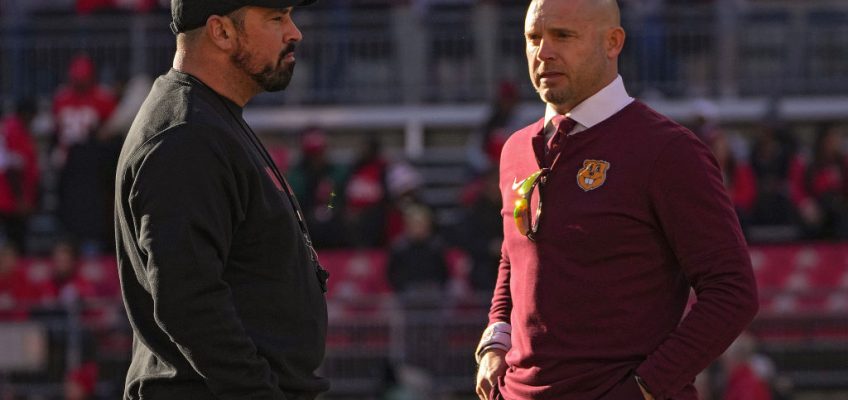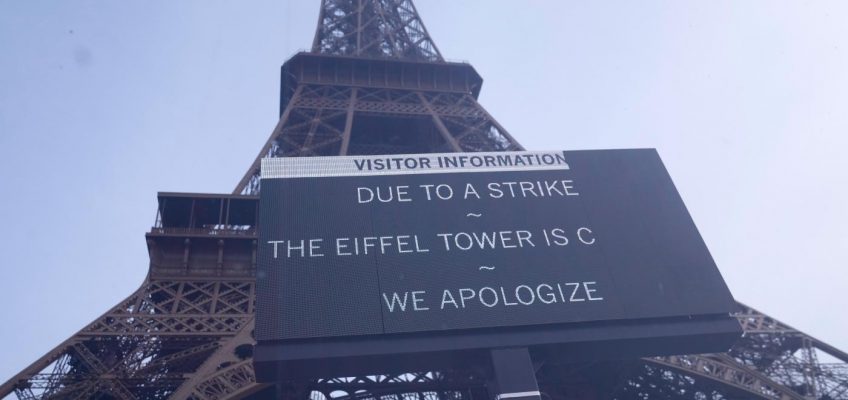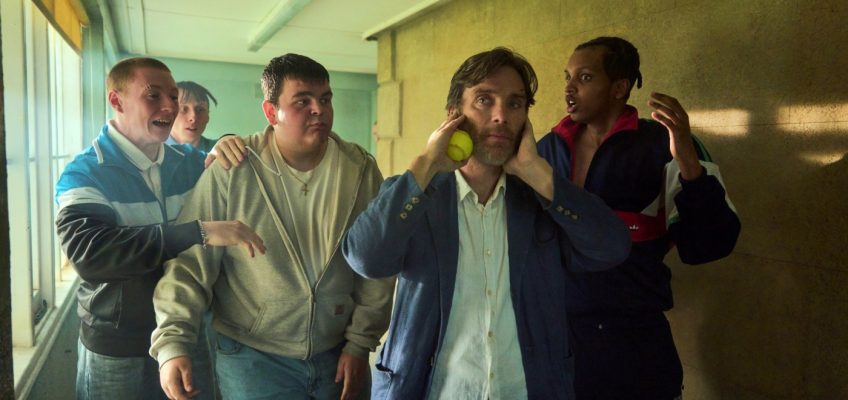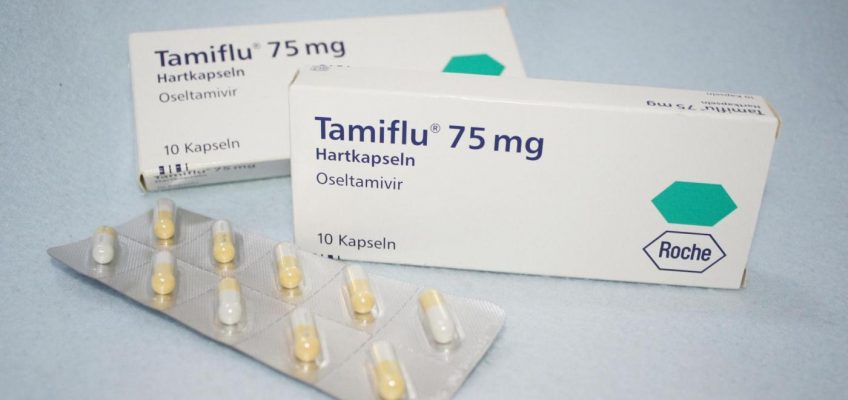MINNESOTA at No. 1 OHIO STATE
When: 6:30 p.m. CT, Saturday
Where: Ohio Stadium, Columbus
TV: NBC
Radio: KFAN, 100.3 FM
Weather: 78 degrees, clear skies, 5 mph north wind
Betting spread: Ohio State, minus-23.5
Records: Top-ranked Ohio State (4-0, 1-0 Big Ten) shutdown Washington 24-6 in Seattle on Saturday, while Minnesota (3-1, 1-0) made a 14-point comeback to beat Rutgers 31-28 in its Big Ten opener.
History: The Gophers have lost 13 straight games to the Buckeyes, with the U’s last win coming 25 years ago, a 29-17 win at the Horseshoe in 2000. Minnesota lost 37-3 in its last trip to Columbus in 2023.
Big question: Will head coach P.J. Fleck throw the kitchen sink at the Buckeyes? Minnesota is a huge underdog against the defending national champions, so an aggressive approach — trick plays, fourth-down conversions — will likely be necessary to pull off the massive upset. Against the Buckeyes in 2023, Fleck faced a few fourth-down opportunities near midfield, but opted for punts.
Key matchup: Ohio State receiver Jeremiah Smith vs. Gophers cornerbacks. The Bucks’ 6-foot-3, 223-pound freak is averaging nearly 100 yards and one touchdown per game, while the U’s green defensive backs are still getting acclimated to their first Big Ten action.
Stat: With a win this weekend, Ohio State head coach Ryan Day would pass Notre Dame’s Knute Rockne for the all-time best career winning percentage (.882) in major college football.
Who has the edge?
Gophers offense vs. Ohio State defense: New Ohio State coordinator Matt Patricia has his new unit dialed in; they are No. 1 in the nation, allowing 5.5 points per game. And Fleck joked how Washington went above that average with a whopping six points. … Without its top two tailbacks, the Gophers abandoned the running game against Rutgers. Backups Fame Ijeboi and Cam Davis managed 3.0 yards per carry and it’s unclear if Darius Taylor (hamstring) will be able to return this week. But A.J. Turner (knee) has been ruled out for the season. … QB Drake Lindsey won Big Ten freshman of the week after completing 76% (31 of 41) for 324 yards and three touchdowns against Rutgers’ below-average secondary. Under a former NFL coach, Ohio State’s pass defense has been top notch, giving up 132 yards to rank eighth in the nation and will challenge the U’s redshirt freshman, showing him one coverage pre-snap and switching into something entirely different post-snap. … Unanimous All-America defensive back Caleb Downs is treated like a queen on a chessboard; he has lined up at free safety, cornerback, nickel back, a box defender or linebacker and even defensive line. EDGE: Ohio State
Gophers defense vs. Ohio State offense: Here’s one way to illustrate the talent gap between the two programs: the Buckeyes had six players named to the Senior Bowl’s new Top 300 list; the Gophers had one (defensive tackle Deven Eastern). … WR Carnell Tate and TE Max Clare, a transfer from Purdue, are on the Senior Bowl list. Tate has been Robin to Smith’s Batman with three touchdown catches, while Minnesota has had trouble with athletic tight ends in the past. … The Gophers had one takeaway against Rutgers and turned it into a touchdown, but should have had at lest two more if D-backs catch passes that hit their hands. To pull off a shocker this weekend, Minnesota will likely need to be at least plus-two in turnover margin. The Gophers are minus-1 in the take/give against FBS competition this season. … Julian Sayin, the No. 1 quarterback in the 2024 recruiting class, has been living up to the hype, even if the Buckeyes are taking a more conservative approach with him. He leads the nation with 79% completions. … RT Phillip Daniels, a Cincinnati native, transferred from the Gophers to Ohio State last year and has stepped into a starting role this season. The U sure could use the 6-5, 315-pound force. EDGE: Buckeyes
Special teams: In its upset bid, Washington tried a fake field goal last week, but didn’t execute it properly. … PR Brandon Inniss has a 32-yard return to his name, while Minnesota’s KR Koi Perich had a season-long 56-yarder vs. Rutgers. … K Jayden Fielding is 4 for 4 on field goals, with a long of 38, while K Brady Denaburg is 5 for 7 on the season, but both misses beyond 50 yards. His career long is a 46 yarder. EDGE: Ohio State
Prediction: Buckeyes fans will be tuned up for a rare night game at the Horseshoe and the talent gap on the field will become apparent soon after the dusk kickoff. Gophers will try some trick plays like they did against Penn State last year, but it won’t be enough against elite competition. Buckeyes dominate 30-7.
Related Articles
Gophers football: Big Michigan linebacker flips from Central Florida
Get to know Gophers leading tackler Devon Williams
Gophers football: Tall Wisconsin tight end George Rohl commits to UMN
How Gophers’ QB Drake Lindsey won Big Ten freshman of the week
Gophers football: Popular Utah receiver Kai Meza de-commits from UMN




